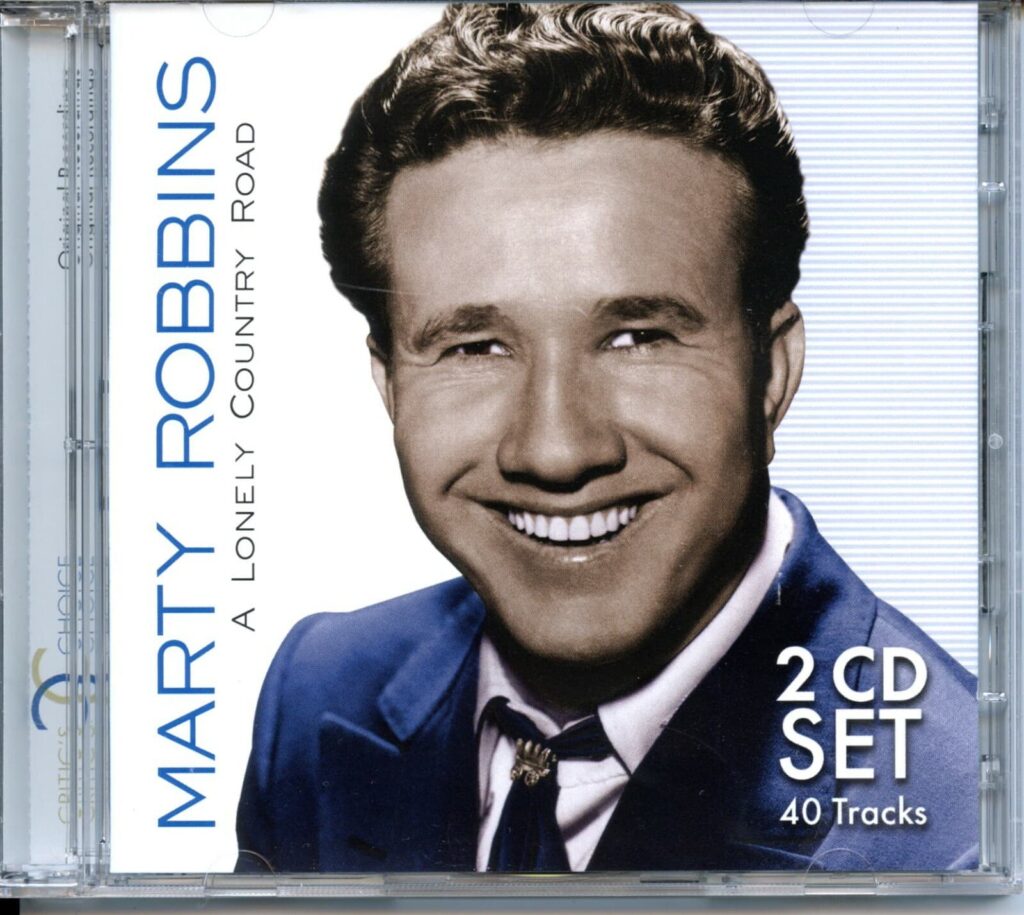
A longing for home on forgotten country roads — the quiet mystery of “Country Roads” by Marty Robbins
When you search through the annals of classic country music, you won’t find a definitive chart record for “Country Roads” as a hit single by Marty Robbins — a fact that adds to its aura: whispered legend, a hidden track that slips into memory rather than booms from the loudspeakers. What remains unmistakable is the spirit of the song: a man riding winding highways, chasing some elusive comfort, listening for home in the hum of tires and the whistle of wind.
Although “Country Roads” was never listed among the 60-plus Billboard singles Robbins had on the charts, it lives on as a curious, almost spectral entry in his catalogue — a song that seems to belong to no place and yet belongs to everywhere. Robbins, already a towering figure in country music by the 1970s, recorded “Country Roads” at a time when his voice carried both weathered wisdom and restless longing.
In Robbins’s hands, “Country Roads” becomes more than a journey: it becomes a confession of weariness, a nod to shifting seasons, and a quiet search for belonging. The instrumentation is spare — gentle guitar strums, distant steel, a rhythm that moves like a late-night road under low beams. There is no fanfare, no bright chorus. Instead, there is the steady pulse of a highway and a voice that carries stories across miles.
The lyrics evoke landscapes that feel both familiar and distant, as if Robbins is riding away from everything he knows but still carrying it in memory. The road becomes a metaphor for life’s detours: lost love, faded dreams, quiet regrets. Yet the journey endures. There is no triumphant return, only the ongoing hum of tires on asphalt and the sorrow of miles stretching ahead. For listeners who have worn the soles of old boots, who have felt loneliness stretch across midnight gas stations or empty porches, the song resonates like an echo from a life half-remembered.
What gives “Country Roads” its haunting power is its refusal to offer closure. Many of Robbins’s hits — the gun-fighter sagas, the romantic ballads — conclude with resolution, justice, redemption. But here, there is only the road itself, endless and unkind. The man singing doesn’t expect heaven or home — he only needs to keep moving. This aligns with Robbins’s broader artistry, where tales of the West, of heartbreak, of longing, often carry no promise of rest.
For older listeners who may remember playing his records on dusk-lit porches, “Country Roads” can feel like an unspoken memory — not quite grief, not quite hope, but the quiet ache between them. It evokes a generation of travelers, of working-hands and drifting souls, whose lives were measured in the miles they put behind them, and the distance they carried within.
In the broader scope of Robbins’s work — from the dusty gun-fights of “Big Iron” to the star-crossed romance of “El Paso” — “Country Roads” may seem like a shadowed footnote. Yet its subtlety is its strength. It reminds us that for some journeys there is no destination; for some songs, there is no chorus that lifts your spirits — just the hum of the road, and the steady beat of a restless heart.
Marty Robbins gave us a hundred stories of love, loss, and redemption over the decades. But “Country Roads” remains perhaps his most honest: a road song without end, a longing without closure, and a testament to the restless spirit that haunts every wanderer’s soul.